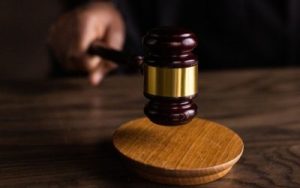Grand Larceny
Grand Larceny New York: Legal Implications and Defense Strategies
Learn about Grand Larceny in New York, its legal implications, and how Richard Hochhauser, DWI & Criminal Lawyer, can provide professional guidance and strong legal representation.
What Is Grand Larceny?
Grand larceny is a spectrum of theft offenses under New York penal law primarily defined by the unlawful/wrongful taking of property valued above a certain threshold. It is a serious felony that should not be confused with the minor theft charge of petit larceny, which carries much lighter penalties.
Given the state’s stringent laws against grand larceny crimes, being charged with such an offense can have life-altering consequences. If you’re facing such charges, understanding the nature of these offenses is crucial for a strong defense.
Our experienced criminal defense lawyer at Richard Hochhauser DWI & Criminal Lawyer understands the intricacies of the different types of grand larceny and can help you prepare a formidable defense and secure your rights at every stage of the legal process.
Types of Grand Larceny
In New York, grand larceny occurs when the stolen property has a value exceeding $1,000. There are different degrees of grand larceny based on the property’s value:
Grand Larceny in the Fourth Degree
Fourth-degree grand larceny in New York is the least severe level of grand larceny but is still a serious felony. It involves the theft of property or money valued at more than $1,000 but not exceeding $3,000.
Certain types of thefts also qualify as fourth-degree grand larceny, regardless of the value of the property stolen. These include:
- Theft of a public record, writing, or instrument
- Theft of secret scientific material.
- Theft of property directly from the person of another (like pickpocketing)
- Theft of a credit card or debit card.
This crime is classified as a Class E felony and may be punished by imprisonment for up to four years.
Grand Larceny in the Third Degree
Third-degree grand larceny occurs when someone unlawfully takes property or money valued at over $3,000 but not exceeding $50,000.
Third-degree grand larceny also covers specific types of theft, such as:
- The theft of an Automated Teller Machine (ATM) or its contents
- The theft of retail merchandise (valued at the above threshold) independently or as part of a common scheme ( like shoplifting)
This offense is a Class D felony. A conviction for this type of felony could result in imprisonment for up to seven years, among other possible penalties.
Grand Larceny in the Second Degree
Grand larceny in the second degree involves any of the following:
- The theft of property valued over $50,000 but not exceeding $1 million
- Extortion of property regardless of its value
- The theft of retail goods or merchandise valued over $ 50,000
- Theft of the title documents to a residential or commercial mixed-use property or two or more commercial properties
This larceny offense is a Class C felony and could lead to imprisonment for up to 15 years.
Grand Larceny in the First Degree
This is the most serious larceny offense under New York law. It involves the theft of property valued over $1 million and is classified as a Class B felony.
The penalties for this larceny degree include imprisonment for up to 25 years.
Other Consequences of a Grand Larceny Conviction

Beyond the immediate legal penalties, a conviction for grand larceny can have long-lasting effects on a person’s life. Finding employment can become much more difficult with a felony on your criminal record. Many employers perform background checks, and a theft-related conviction can be a significant barrier.
The impact extends to housing as well. Landlords/property managers are often hesitant to rent to individuals with criminal records, especially for theft-related crimes.
Furthermore, a felony conviction can affect your civil rights, including the right to vote and serve on a jury. That’s why it is important to do all you can to defend yourself and avoid a conviction.
Defenses Against Grand Larceny Charges
Defenses against grand larceny charges can vary based on the specifics of the case. Common examples of such defenses include:
- Lack of (Criminal) Intent: Demonstrating that there was no intention to permanently deprive the property owner of the property could be a defense if you intended to return the property or mistakenly believed you had permission to take it.
- Ownership or Permission: Showing that you had rightful ownership or permission to take the property can negate the charge. This might involve proving you were authorized to possess the property in question or had a valid claim to such property.
- False Accusation: Proving that the accusations against you are false or that someone else is responsible for the theft can be a defense. This might involve evidence of mistaken identity or ulterior motives by the accuser.
- Insufficient Evidence: Challenging the prosecution’s evidence can be effective. If the evidence does not conclusively prove that you committed the theft or that the property’s value falls within the grand larceny threshold, it may weaken the prosecution’s case.
- Constitutional Violations: If the evidence against you was obtained through illegal search and seizure or other constitutional violations, it might be excluded by the court which would help to weaken the case against you.
Each case is unique, so it’s essential to work with a skilled attorney to determine the most suitable defense based on the specific facts of your case.
Building a Strong Defense: How Richard Hochhauser, DWI & Criminal Lawyer Can Help

Legal representation in grand larceny cases is crucial for several reasons, including the following:
- Understanding the Law: An attorney can help navigate complex legal concepts and procedures specific to your grand larceny charge, ensure that your rights are protected and that you fully understand the allegations against you.
- Crafting a Defense Strategy: A lawyer can help develop a tailored defense strategy, whether it involves challenging evidence, negotiating plea deals, or presenting mitigating factors that could reduce the charges or penalties.
- Courtroom Representation: A competent criminal defense attorney can provide effective advocacy in court, leveraging their knowledge of the legal system and courtroom procedures to your advantage.
- Negotiations: An attorney can negotiate with prosecutors to potentially reduce charges or secure a more favorable outcome, such as a lesser sentence or alternative sentencing options.
Our experienced criminal defense attorney at Richard Hochhauser DWI & Criminal Lawyer embodies the skills and qualities you need to ensure that your legal rights are upheld and that you receive a fair trial.
At our firm, we believe in a tailored defense strategy for each client. From the initial consultation, we are prepared to work closely with you to understand the specifics of your case. This allows us to develop a unique approach and build a formidable defense that fits your situation.
We also handle other types of theft crimes and criminal cases such as such as assault, DUI, and white-collar crimes. Many clients have found success with our strategies, reflecting the effectiveness of our representation. We’d be glad to put our skills, knowledge, and experience to work for you as you fight for freedom from the criminal justice system.
Contact Us Today

Grand larceny is a serious criminal offense that carries significant legal consequences. The complexity and severity of these cases make it essential for individuals facing such charges to seek experienced legal representation.
Our battle-tested criminal defense attorney at Richard Hochhauser DWI & Criminal Lawyer can help you navigate the intricacies of the legal system, advocate for your rights, and work towards the best possible outcome if you’re facing grand larceny charges.
Contact us today to get started.
Defend Your Future Now: Schedule a Free Consultation
Facing criminal charges in Nassau County requires experienced legal representation to protect your rights and secure the best possible outcome. Don’t navigate the complexities of the legal system alone. Your future is too important to leave to chance—Contact Hochhauser Criminal & DWI Defense today to schedule a free consultation and receive diligent criminal defense representation.
FAQs
while there are many well reputed criminal defense lawyers in Nassau County, finding the right one for you and your case can be daunting. Look for criminal defense attorneys with experience handling your specific charges. Additionally, consider their reputation within the legal community through testimonials, awards, and reviews. You may also need to assess their ability to provide personalized attention to your case.
The cost of hiring a criminal defense attorney in Nassau County can vary based on factors such as the complexity of your case, the attorney’s experience, and the legal services required. Make sure to discuss the fees and payment structure upfront to avoid unpleasant surprises.









